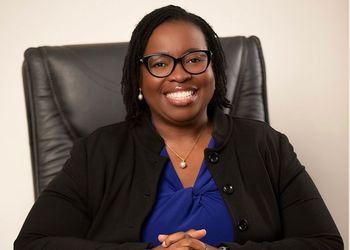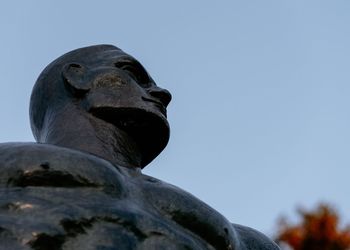Spartan Story: Genealogy Guru
For Kenyatta Berry genealogy is more than names and places found on a U.S. Census record, more than the ethnic percentages lining a DNA report.

Genealogy, among the nation’s most popular hobbies, is about discovering details and truths that create compelling stories.
“And those stories enlighten people, bridge generations and spark pride,” said Berry, ’94, Broad College of Business, a professional genealogist, author and host of the Genealogy Roadshow on PBS.
Berry’s fascination with genealogy began during her time at Thomas M. Cooley Law School, where she earned a JD degree in 1998. While digging into a friend’s ancestral history, a prominent African-American family from the southeast, Berry uncovered newspaper reports, biographical sketches and other documents that produced a vibrant family portrait. The friend’s great-great grandfather, for instance, was born in Georgia in 1833 to a white father and an enslaved African-American mother before becoming a distinguished pastor and outliving three wives.
Berry, who later investigated her own family’s roots—enslaved Virginians-turned-upstate New York farmers—launched Azani Media in 2004 to help others connect to their past through DNA, research and technology. “Through this research, you grow connected to history and see how lives are intertwined, so much so that it can become an obsession.”
Berry’s passion for genealogy, deep work in the field and role as president of the Association of Professional Genealogists later led to an on-air opportunity with PBS. In 2013, the Detroit native hosted the debut episode of Genealogy Roadshow. She spent the subsequent three years visiting a dozen cities, unpacking the ancestral backstories of everyday Americans, showcasing local genealogical societies and sharing tangible tips to guide viewers’ own research adventures.
“I love seeing the impact the show’s had on people,” said Berry, who specializes in enslaved genealogy, a particularly complex area that requires knowledge of both African-American and European genealogical research. “People often think one thing, but discover new truths that add depth to their stories.”
With Genealogy Roadshow on hiatus since 2016, the Santa Monica, California-based Berry turned her attention from the small screen to the page with the November 2018 publication of The Family Tree Toolkit, a 288-page tome designed to help novice genealogists navigate the often-daunting process of ancestral research. The how-to book blends investigative instruction, including an exhaustive chart on where one can find particular records in each state, alongside tips for interviewing family members and strategies to construct more lively, detail-filled stories.
“I wanted to make it easier for people given all the information genealogy can entail,” said Berry, who left her 17-year career in the software industry behind in December 2017 to focus solely on her genealogical pursuits. “Genealogy isn’t just about finding Census records, but knowing what’s important in those records and interpreting the information.”
The beauty of genealogical research, Berry continued, is that the effort inevitably prompts conversations with grandparents and older family members, driving introspection and connections to individuals both past and present.
Genealogy is ultimately about rebuilding family unity and tying people together at a time when people so desire genuine connections. That’s the piece I find incredibly rewarding.
For more: Kenyattaberry.com
Contributing Writer(s): Daniel Smith



